Former state boxing champion Richard ‘Trino’ Savala emerged from a criminal past to become the region’s most unique youth advocate and bail bondsman
Richard “Trino” Savala steers his Chevy Malibu under a fierce winter sun sharpening across the sky. He makes a turn, driving through east Woodland until he comes to a horseshoe of apartments where shirts are dangling from clotheslines and mariachi music is blasting from a half-opened window. Savala steps out of the car.
“Eh, mijo!’ he calls. “Come out here!”
A 15-year-old kid trots through a screen door, flashing a lazy smile. His name is Isiah and he’s one of the 20-plus teens that Savala does truancy work with at Cesar Chavez Continuation School. Savala knows that Isiah has been restless lately—and getting into fights. They chat about boxing, and Savala asks Isiah if he’s coming back to the gym soon.
“Boxing gives them a positive place to focus that energy,” Savala says. “At least right now we only have three kids in juvenile hall, and that means I’m doing my job.” He shakes his head, adding, “A lot of these kids out here grow up with no pops—there’s just no dads in their life. There’s no guidance.”
Part of Savala’s story has been written before.
It’s the epic of a south Broderick troublemaker who punched his way to becoming California’s featherweight boxing champion, a relentless, 21-0 knockout monster who then blew his shot at a world title in a bizarre, cocaine-fueled match that led to a riot at Sacramento’s Memorial Auditorium. Savala’s fall from the spotlight lead straight to an underground exile where he was selling heroin and robbing drug dealers. That, in turn, got him 18 years in the penitentiary and long stretches of being a soldier for the Northern Structure prison gang. After Savala walked away from those stone walls and steel bars for good, he became a licensed drug counselor and homeless navigator in Sacramento. He set out to undo the damage he’d done. He wanted to help people rebuild their lives.
It’s a tale that has inspired many, one often told in a linear fashion. But there’s nothing straightforward about Savala’s journey of self-understanding, or about the steps that have brought him to this rundown apartment in a neighborhood he calls “the barrio.” Lately he’s found a new calling that’s lead to holding dual jobs as a youth advocate for the Yolo County Office of Education and the gang prevention coordinator for the City of Woodland. It’s the next chapter of his sea change, one that’s also coincided with him moonlighting in California’s controversial bail bonds industry.
Critics have accused the lucrative cash bail industry of preying on and profiting from the poor, as well as contributing to an unfair system of pretrial justice. Representatives from the industry counter that they provide an important service by chasing and recapturing low-level absconders whom local enforcement doesn’t have the time or resources to pursue. With violent crime on the rise in most counties since 2017, these bondsmen argue that the last thing most Californians want is to take away police officers’ private industry backup. And they’re betting on that in 2020.
After the Legislature and then-Gov. Jerry Brown passed a law in August 2018 to abolish the cash bail system, the bond industry quickly gathered more than 400,000 signatures to qualify a referendum on the November 2020 ballot to overturn the new law. The industry is also working on a second ballot measure that would actually enshrine cash bail into the state’s constitution.
Standing in the middle of these arguments is Savala, believed to be one of only three former felons that the state’s insurance department has ever cleared to work as a bail agent. Occasionally he does the job with a badge and a Taser, but more often his approach is as unorthodox as his back story. Savala has made himself an expert in navigating mental health services, addiction treatment, domestic violence and affordable housing—and made that the main focus of his bail bond business. He says he’s assisted numerous families steer loved ones to the services they desperately need. And while Savala strongly supports keeping California’s cash bail system—it’s been profitable for him, too—he also admits he doesn’t know any other bondsmen who bring his help-centered approach to the business.
Do the lessons Savala has learned on his road to hell and back show a different path for the embattled bail industry?
Winter
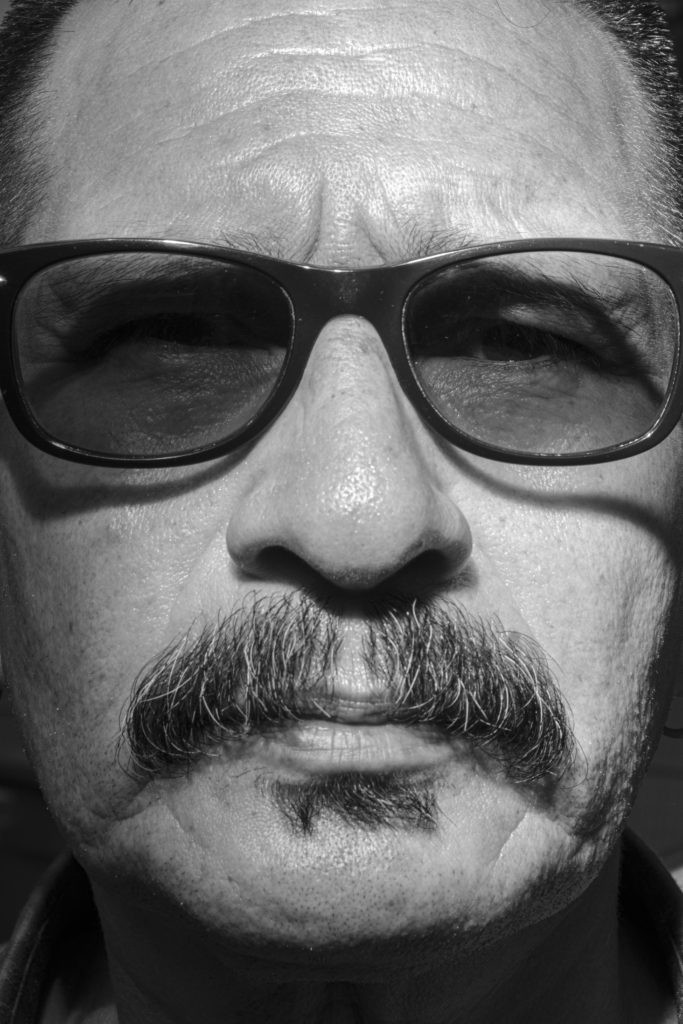
A February wind rattles some dry, wild oats teetering along a parking lot at the very edge of Woodland. Savala’s Malibu rolls through it and parks near a stack of faded apartments shadowed by the calm, chilly sunset. He dials one of the teens on his truancy caseload. “Hey, where you at?” he asks.
“I’m here, fool!” a young voice replies. Moments later, a 17-year-old named Tony is standing next to Savala. Tony knows all about his mentor’s glory days in the ring. He’s been having Savala train him.
“I just love getting in there and throwing punches,” Tony says, “and even taking the hits. If you’re going to get in there and give it, you gotta take it, too.”
Tony is planning to join the U.S. Marine Corps after high school. Savala’s helping him stay focused on classes and also enrolled him in a vocational course for auto body and fender work. After joking about Tony’s sparring prowess, Savala gets back in his car, driving into Woodland’s Donnelly Circle to visit another teen. Savala says this part of town has been a recruitment ground for the Sureno street gang. Teenagers who are Norteno-affiliated never go there.
“You try to keep these kids out of gangs, but some of them are going home to a dad who’s a gangbanger,” he says. “You try to keep them off drugs, but some are going home to parents who are both dope fiends. That’s what makes it tough.”
Savala wants to keep the teens away from gangs and the drug world because he’s seen first-hand the true, terrible face of violence. He says that mental scar tissue also motivates how he handles his bail bond business.
When Savala was 10, two men kicked in his mother’s front door in West Sacramento and put a shotgun to his head. He watched the intruders aim their 12-gauge at his brothers Danny, 7, and Mario, 9, as well. It was a drug robbery targeting their mother’s boyfriend, but the Savala kids were caught in the middle.
For the brothers, events leading up to that moment were also disturbing. Their father Trino Savala Sr. had been Sacramento’s most exciting boxer in the early 1960s. Graceful and with Rudolph Valentino good looks, he had an athletic star-power that kept the capital talking. But in 1965, he suffered a devastating concussion while fighting Ricardo Moreno and his career was cut short. For the next three years, he spent most of his days teaching his little sons how to throw jabs, crosses, hooks and uppercuts. Then, one night in 1968, he was sleeping in Sacramento’s L Street Boxing Arena when faulty electrical wires caused a fire. Emergency responders found Trino Sr. crouched in the gym’s showers with the water running, burns covering his entire body. Savala says that, for the rest of his life, Trino Sr. was “basically a vegetable.”
Savala’s mother, Mary, soon received a financial settlement from the blaze. Word got around that she wasn’t just beautiful, but also had money. Savala says that drew the wrong kind of men, especially a new boyfriend who was deep in the drug world. That led to the armed home invasion—and he and his brothers looking straight into the barrel of a shotgun.
“We were terrified,” Savala recalls. “They had us all rounded up. It’s something I’ve thought about a lot during my life. Violence like that traumatizes kids. One of my brothers is still affected by it.”
In 1979, Savala won his first professional fight against Johnny Salcedo, dropping him with a jab and right cross in the third round. But a few days later, his budding career almost ended. He was cruising through William Land Park with his brothers when they got into a melee with a group of young men. A war of words spun into fisticuffs. Savala stepped in, dropping one of the strangers with a surgical boxing combo. He heard someone scream, “Motherf—– that’s my brother!”
Then he heard a gunshot.
A bullet crashed into Savala’s ribcage, blasting the air out of his lungs. He stumbled out into the street and was suddenly hit by a car. “I flew through the air,” he recalls. “I woke up in a hospital. I was out of boxing for a whole year.”
Much later, in the drug world’s culture of hopelessness, he again saw what violence really looked like. He witnessed people ruthlessly beaten over heroin scores, and armed car pursuits between pushers. He watched gang leaders order men on the prison yard to stab their own friends.
These days, Savala doesn’t just strive to keep Woodland’s youth away from those dark turns, he works closely with the families who hire him as a bondsman to do the same. Often, that means working on a contract that stipulates he and the family can revoke bail if the defendant is not seeking drug treatment. Savala knows all too well that the drug world brings risks newer addicts can scarcely imagine.
“It’s not like I read about it in some book,” he says. “I learned about it the real way.”
Spring
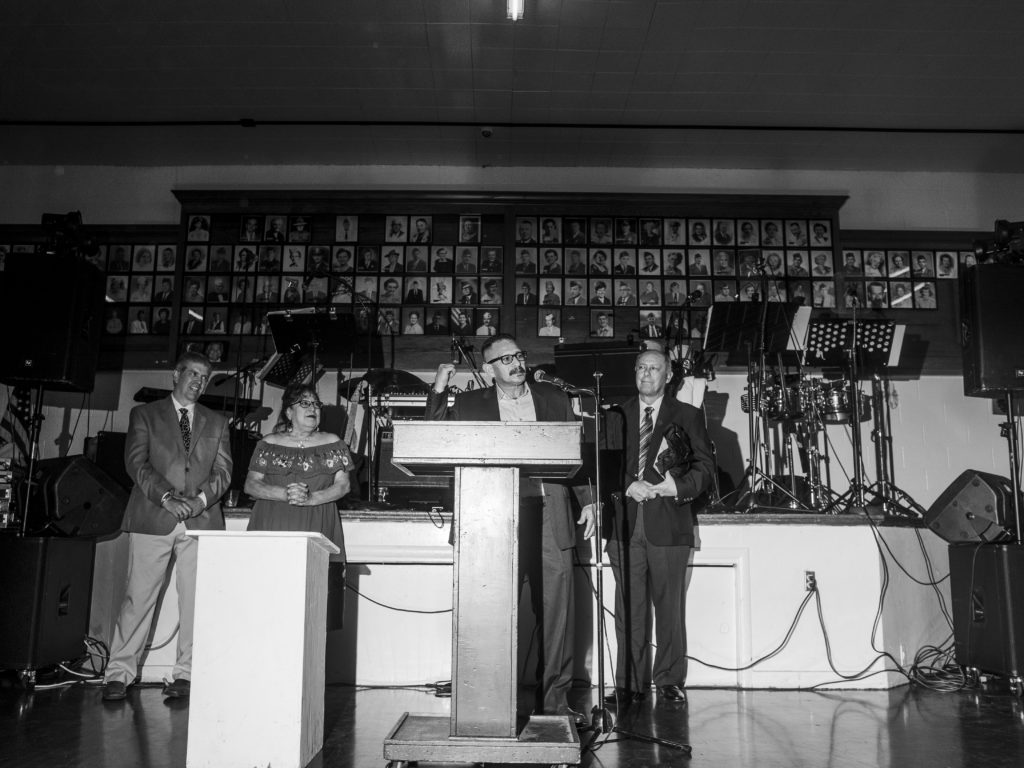
A crowd wearing tuxedos and evening gowns moves by the chain-link fence, decorated in red, white and blue, alongside the VFW Hall on Stockton Boulevard. They turn by the artillery cannon on the front lawn as they stroll through the doors. Inside, the Mexican-American Hall of Fame Sports Association is preparing to recognize a different kind of artillery—Savala’s hellacious right cross, and the role it played in Sacramento’s golden era of boxing.
Dressed in a black suit and sporting his slim, signature Ray-Bans, Savala shuffles from table to table in the banquet room, shaking hands, telling jokes and introducing his wife, Carmine. His brothers are also there. It’s a special night for the family. Not only is Savala being inducted into the hall of fame, but so is his father, posthumously.
Eddie Cervantes, president of the Mexican-American Hall of Fame Sports Association, remembers his own dad taking him to watch Trino Sr.’s matches in Sacramento. “He was absolutely my favorite,” Cervantes says. “It’s probably because he was this smooth, great-looking Mexican guy who was so graceful in the ring. As a kid, I looked up to him.”
Savala can remember his father’s charisma, though, as he’s gotten older, he’s come to see that it was also a weakness that eventually played an unwitting role in the family’s descent.
The reason Trino Sr. was sleeping inside the L Street Arena on the night it caught fire was that he’d been cheating on his wife and she’d thrown him out of the house. Mary couldn’t have known this would lead to Trino Sr. being crippled and disfigured, but Savala says, on some level, she always blamed herself. The image of police officers showing up at the front door, holding Trino’s charred clothes, would continue playing in both mother and son’s minds for years. Savala can still remember Mary crying at night, talking out loud to the husband she remembered rather than the scarred shell of the man who was there. Even when Mary had money, she never once considered putting Trino Sr. in a convalescent home. She took care of him, no matter who she was living with, or who she was dating.
But the pain of proximity took a toll. Today, Savala has enough experience as former addict and drug counselor to know that guilt played a role in her self-destruction.
“Yeah, mom was medicating herself,” Savala says. “A lot of times when we’re suffering from depression, we find our own medications, so we don’t feel the pain.”
Years later, when Savala was on the brink of getting his shot at the world featherweight championship, he started using cocaine, then opioids and then heroin. Savala says it took years before he stopped lying to himself about the reasons.
“I used to think I used drugs because I liked the feeling,” he says. “But I used drugs because I had pain. I missed my dad. Growing up without him, I just yearned for my father. I used drugs so I didn’t have to feel that.”
This slow-train realization continues to play a big role in why Savala empathizes with the addicts he’s bailing out. He doesn’t judge them. He can’t. Instead, he focuses on determining what programs match their insurance. If they don’t have insurance, Savala knows how to get them into 30-day treatment through county services followed by a 12-step program.
“When you say you’re a drug addict, that’s a nasty word,” Savala says. “Family members will tell me, ‘He’s never going to change. He’s always going to rip me off.’ It’s the most common thing I hear. And I’ll look at them and say, ‘We do change.’ Then I give them the spiel of my life. You know, this is who I used to be.”
Savala says part of sobriety is personal responsibility, but few addicts stand a chance unless there is someone who believes in them. In his case, it was parole agent named Barbara Parkins who championed him all through rehab. It was also former Folsom City Attorney Bruce Cline, who was then part of a program called Volunteers In Parole, in which attorneys and judges mentored men coming out of prison.
“Bruce Cline showed me how to be a father and how to be a good man,” Savala emphasizes. “And Barbara Parkins saved my life. The rest is history … I’m always going to have a passion to help addicts, because there was somebody there to help me.”
Summer
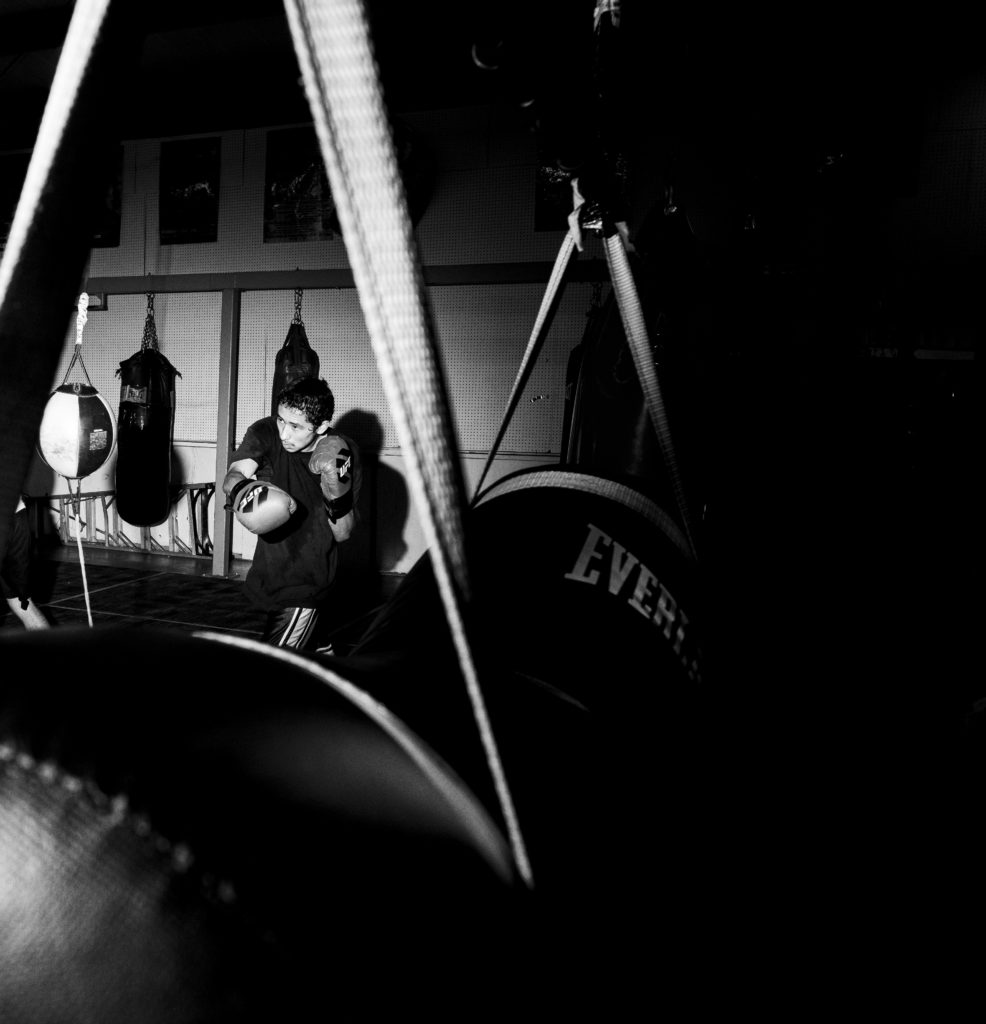
It’s a June broiler and the heat keeps rising inside Center Ring Boxing on Franklin Boulevard. In the far corner, Savala is stepping around three Woodland teenagers he works with—John, Jesus and Emilio—and watching them punch heavy bags. “You’re losing points!” Savala shouts. “Let those hands go!”
A few moments later, Savala moves with sparring-like steps and calls out combinations: “One, one, two, three!” Emilio reacts with his fists, and the gym echoes with a trio of crisp snaps and then a loud whip-crack on the goat skin.
“You gotta get faster with that right hand!” Savala warns, using one mitt to tap the kid’s ribs with a phantom hook. It’s quick and effortless—reminiscent of those body blows that Savala used to break opponents. “One, two, three!” Savala barks.
“Too slow,” Savala says, shaking his head. Emilio picks up his speed, hitting his mentor’s left mitt with two blistering right crosses. “Oh, that was vicious,” Savala chuckles. “Man, you’re going to knock someone out with that!”
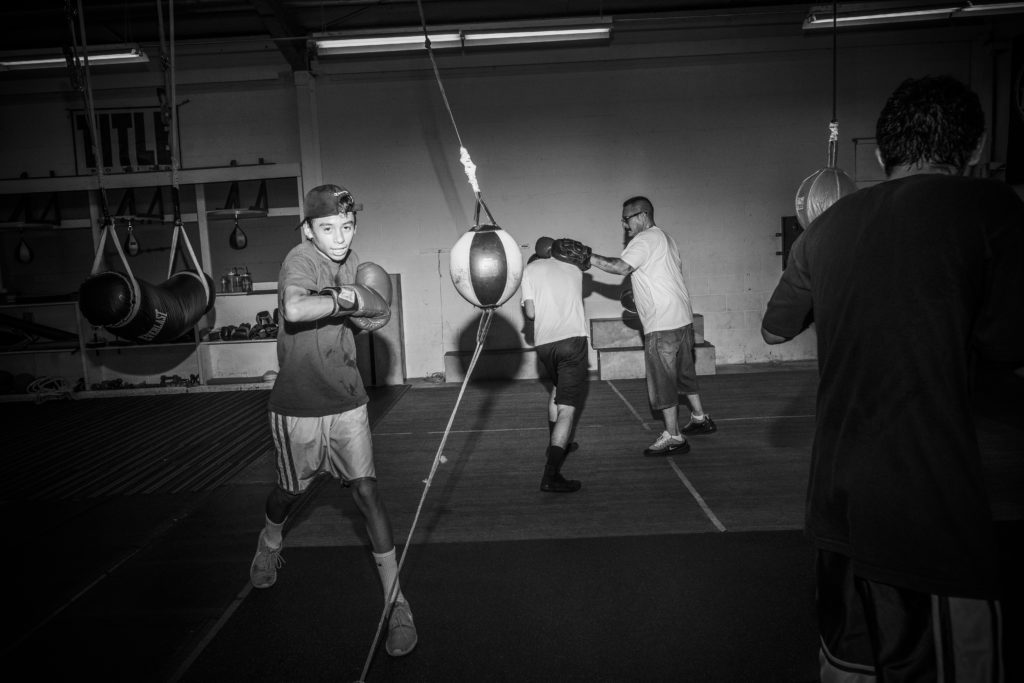
When the bell rings, David Owens, the head coach at Center Ring, gets the teenage boys some water.
“Why you giving them water?” Savala goads. “No one gave us water when we were kids.”
Owens glances over. “That’s because no one liked you.”
The two boxers have known each for 18 years. They agree that Emilio is showing promise. It’s no surprise: Emilio’s father, Jesus Vega, was an up-and-coming boxer until a car accident.
Three days later, Jesus Vega is sitting inside Savala’s air-conditioned kitchen in Woodland, finishing the paperwork on bond that Savala just posted for him for a DUI arrest.
“He always helps, and he works with me,” Vega says. “It’s comfortable. He understands. He’s been there.”
Savala takes a photo of Vega’s driver’s license and writes down his Social Security number. He’s covering $4,000 on a $95,000 bond with 17% interest. Vega’s wife co-signed the bond. Savala carefully explains the agreement to Vega, noting what he is liable for and what Vega’s family is liable for.
“If you don’t come to court, we can come get you wherever you’re at,” Savala says. “We can come to your place of employment, your house—we would surprise you.”
Vega nods, though he plans to settle the DUI. He has a full-time job as an auto body repairman, so he needed Savala to bail him out because he couldn’t risk losing his job by sitting in jail.
“What can you afford?” Savala asks. “Right now, we’re at $500 a month.”
“Can we leave it at that for a few weeks?” Vega replies.
Savala nods. “Sure.”
Fall (of an industry?)
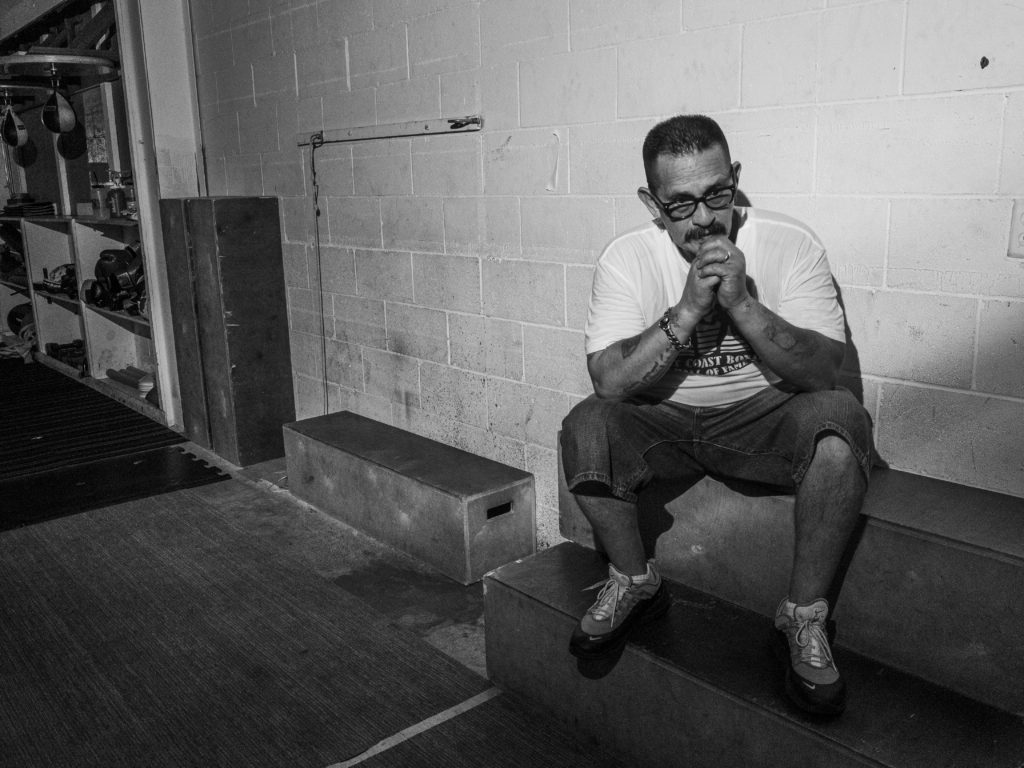
The state’s bail bond industry is preparing to go to political war against the California Money Bail Reform Act, the new law to make the state the first in the nation to scrap cash bail. It would replace bail with a court-administered, algorithmic threat matrix that is supposed to decide who can be safely released.
Savala says that lawmakers sold this change based on a lie—that only better-off Californians can afford bail. “We bail people from all walks of life,” he says. “We work on payment plans with your clients, so it won’t harm them in their everyday living.”
“We don’t want them to be stressed out. That’s one of the main things that makes people run. If you miss your court date, we can fix it. Everything is fixable if you don’t run.”
But criminal justice reform activists see California’s bail industry in a far different light. Brown, during his first stint as governor, called bail an unfair “tax on poor people.”
In January 2018, a panel of state appeal court judges ruled elements of California’s bail system were unconstitutional, after a San Francisco man who reportedly stole $5 and a bottle of cologne spent 250 days in jail because his bail was set at $350,000. While part of that story involved the questionable way prosecutors chose to charge that defendant with robbery, reformers nonetheless saw it as proof the bail system blatantly deprives suspects of their rights.
As the industry looks toward the future, Sacramento County earlier this month began a program that eliminates bail for low-level defendants.
Sacramento’s best-known bondsman, who got Savala into the business, former three-time world boxing champion Tony “the Tiger” Lopez, says Sacramento County officials are asking for crime to go up.
“If the cops are chasing someone who’s fled, it’s on the taxpayers’ dime,” Lopez adds. “If we’re chasing them, it’s on our dime. It’s not a matter of being on the cops’ side, it’s a matter of being on the side of common sense.”
Lopez acknowledges that seeing the way Savala approaches the bond business has changed the way he operates his own. Lopez says he constantly calls Savala to consult on how to get his own clients drug treatment, counseling and housing.
“There’s no one working in bail who knows what Richard knows,” Lopez says. “He’s kept quite a few of his clients from going to prison for the long run.”
For Savala, it’s just one more way to use his torturous journey to help others. Just like his work with youths, he’s convinced a certain kind of bail agent can make a difference.
“To this day, I still support a lot of my clients I’ve bailed out,” Savala says. “I’m part of their support group … I still have people call me and say, ‘Hey, I’m really struggling.’ And I’ll got meet with them, and we’ll talk it out. We talk it out.”

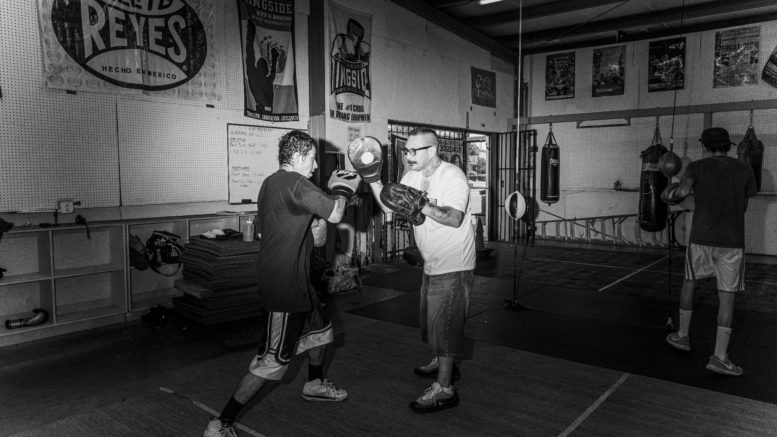

This guy Richard is a true hero and role model. God bless him for doing what he does.
I went to school in Bryte with Trino Sr. He was always one the most respectful, kindest boys in our neighborhood. Love reading this families story, but also sad as I never new what happened to Trino. I am sure we would be very proud of his son’s accomplishments. Thank you for a great story of real family struggles.